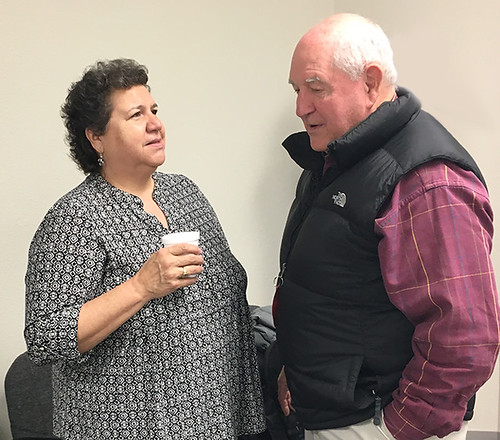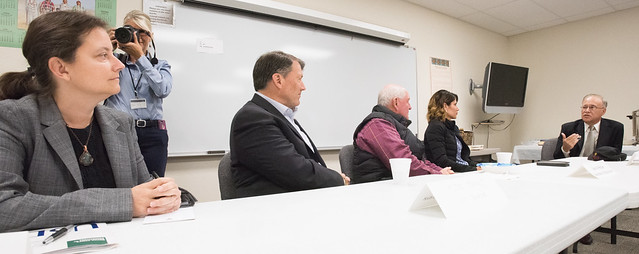
Within a month of his start, Agriculture Secretary Sonny Perdue followed through on his promise to Indian Country to visit tribal leaders. Joining tribal representatives, Senators Rounds and Thune, and Congresswoman Noem at Oglala Lakota College’s Rapid City Extension Center, Secretary Perdue aimed to learn more about the topics significant to both tribal nations and colleges in South Dakota. When the meeting closed, one thought was clear: The U.S. Department of Agriculture (USDA) stands ready to partner with tribal nations in their pursuits.
This meeting marked one of the first discussions with USDA blending feedback from tribal leaders and Tribal College Presidents. Tribal Colleges and Universities (TCUs), as land-grant institutions, typically operate from a unique foundation. Out of 34 accredited 1994 TCUs, all but 2 are chartered by tribal nations, serving as extensions of these tribes to address community needs. Students attending these colleges and universities often find themselves at the intersection of western philosophy and the rich legacy of culturally-sound, traditional knowledge. As land-grant institutions, these schools also help ensure the United States’ food security.
During this meeting, Secretary Perdue reflected on the story of a young boy that walked across the beach throwing starfish back into the ocean. Told that the act was pointless, that the boy could never save every starfish, he responded by saying that the rescue mattered to each one he helped. Similarly, TCU graduates help to build maximum capacity for their communities, and USDA continues to support the mission of these tribal colleges across the country.
Since Fiscal Year 2013, USDA’s National Institute of Food and Agriculture has awarded over $1.8 million to TCUs in South Dakota alone. Innovative projects supplemented by these grants have included researching bison genetics to test for herd integrity, developing Head Start facilities and critical internship opportunities for Native students, and advising Native producers on culturally-appropriate, scientifically-sound land-management practices.
Called by the Administration to look at barriers to rural and agricultural prosperity, Secretary Perdue pledged to continue strengthening the government-to-government relationship between USDA and tribal nations. While this process is on-going, USDA agencies are already engaging with tribal partners to help make a lasting difference:
- USDA’s Rural Development (RD), whose role is being elevated in the Department to report directly to the Secretary of Agriculture, provides loan and grant funding to assist with housing needs, business financing, and utility infrastructure development.
- USDA’s Farm Service Agency (FSA) has collaborated with Lakota Funds to certify them as the first Native Community Development Financial Institute (CDFI) lender for FSA guaranteed loans, extending the reach of agricultural financing in Indian Country.
- In coordination with the Tribal Technical Committee, a subcommittee of the Natural Resource Conservation Service (NRCS) State Technical Committee which provides advice on a number of issues within a variety of conservation programs, NRCS Environmental Quality Incentives Program (EQIP) helped fund a water pipeline and livestock tanks on 15 tribal range units on the Pine Ridge Reservation. Through this partnership, range units previously holding limited livestock water can better support viable ranching operations.
These examples are only some of the ways that USDA resources have helped bridge the gap between need and opportunity. Our response to USDA’s trust responsibility, like our response to customer service, cannot be in name only. We look forward to supporting tribes, tribal organizations, and tribal citizens as they pursue their goals. If you are interested in learning more, we encourage you to contact the Office of Tribal Relations at (202) 205-2249.

